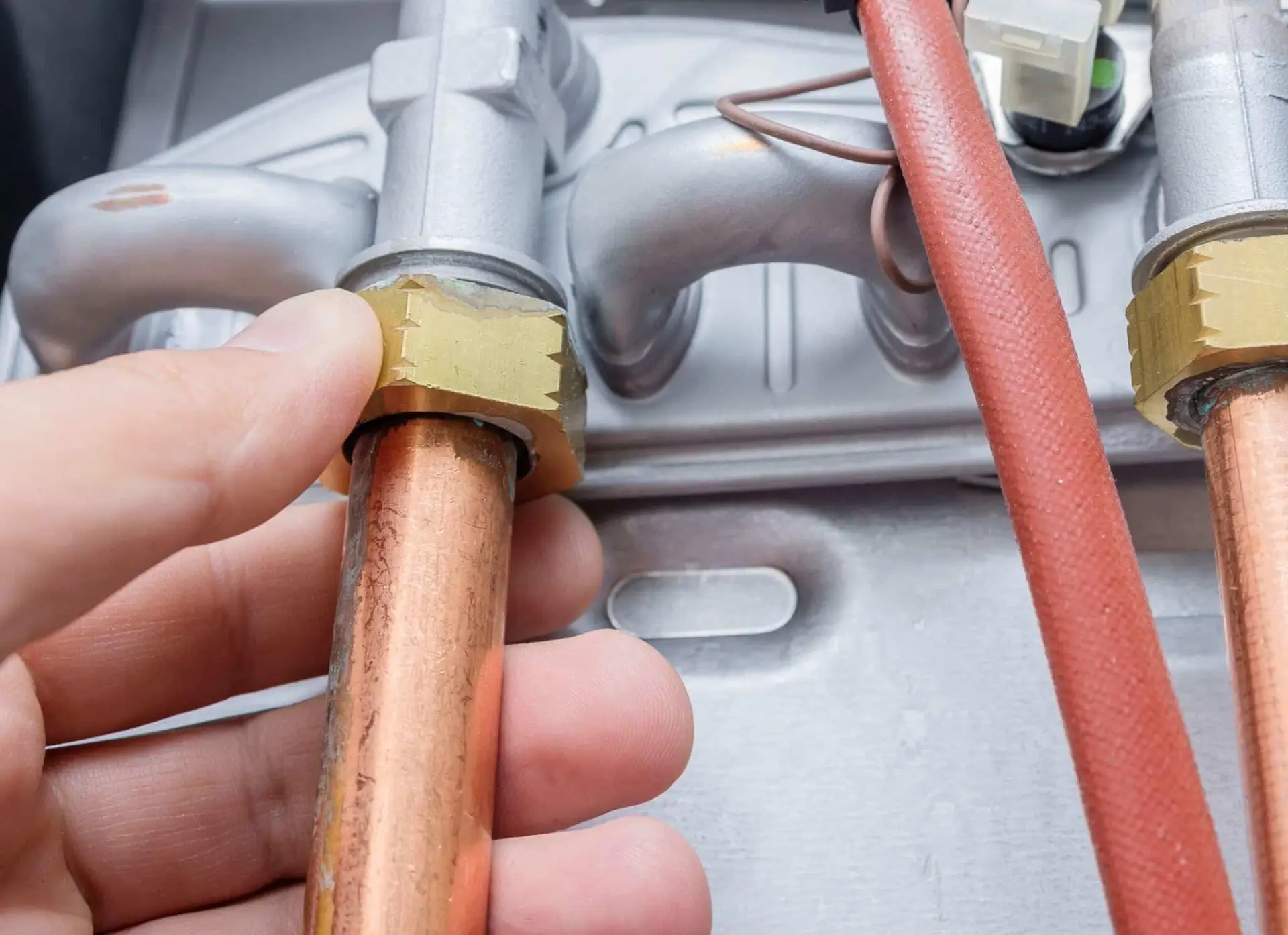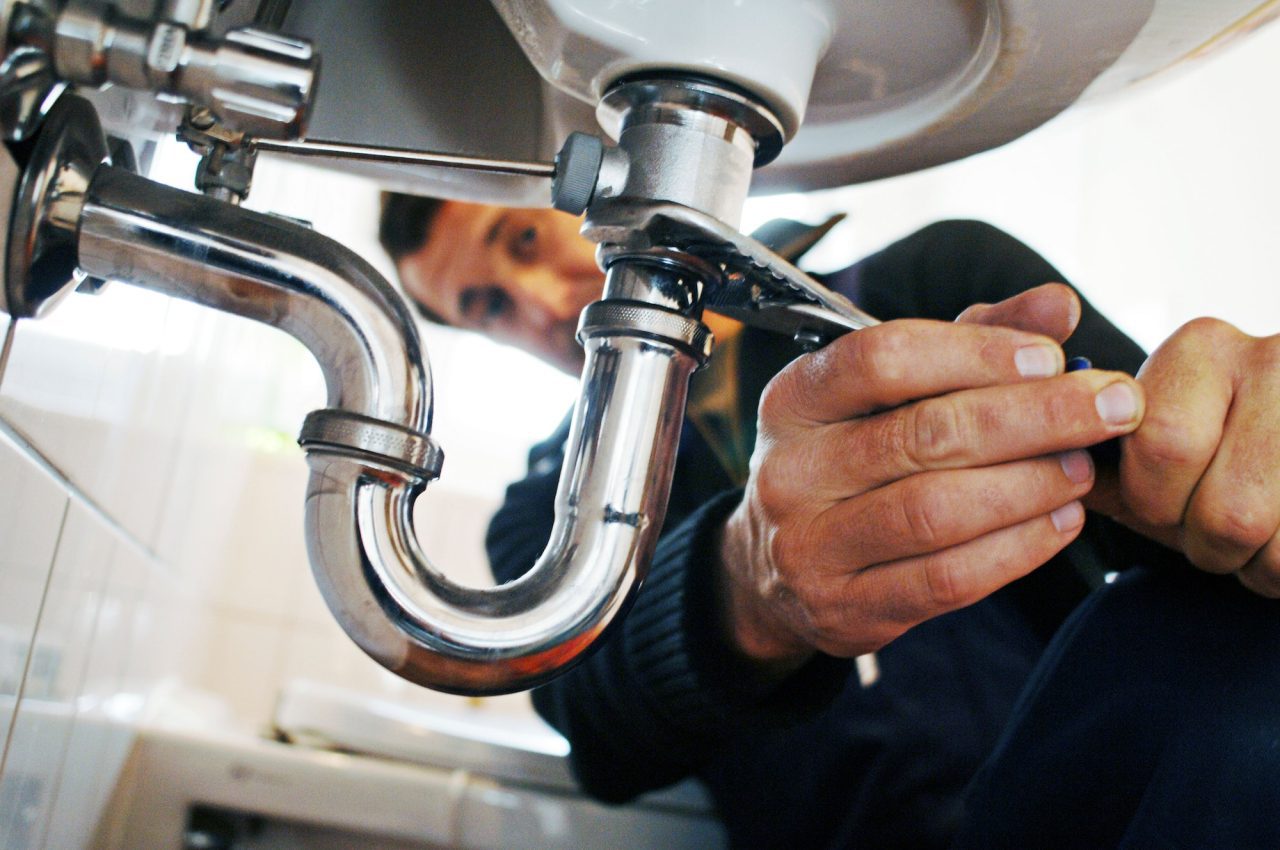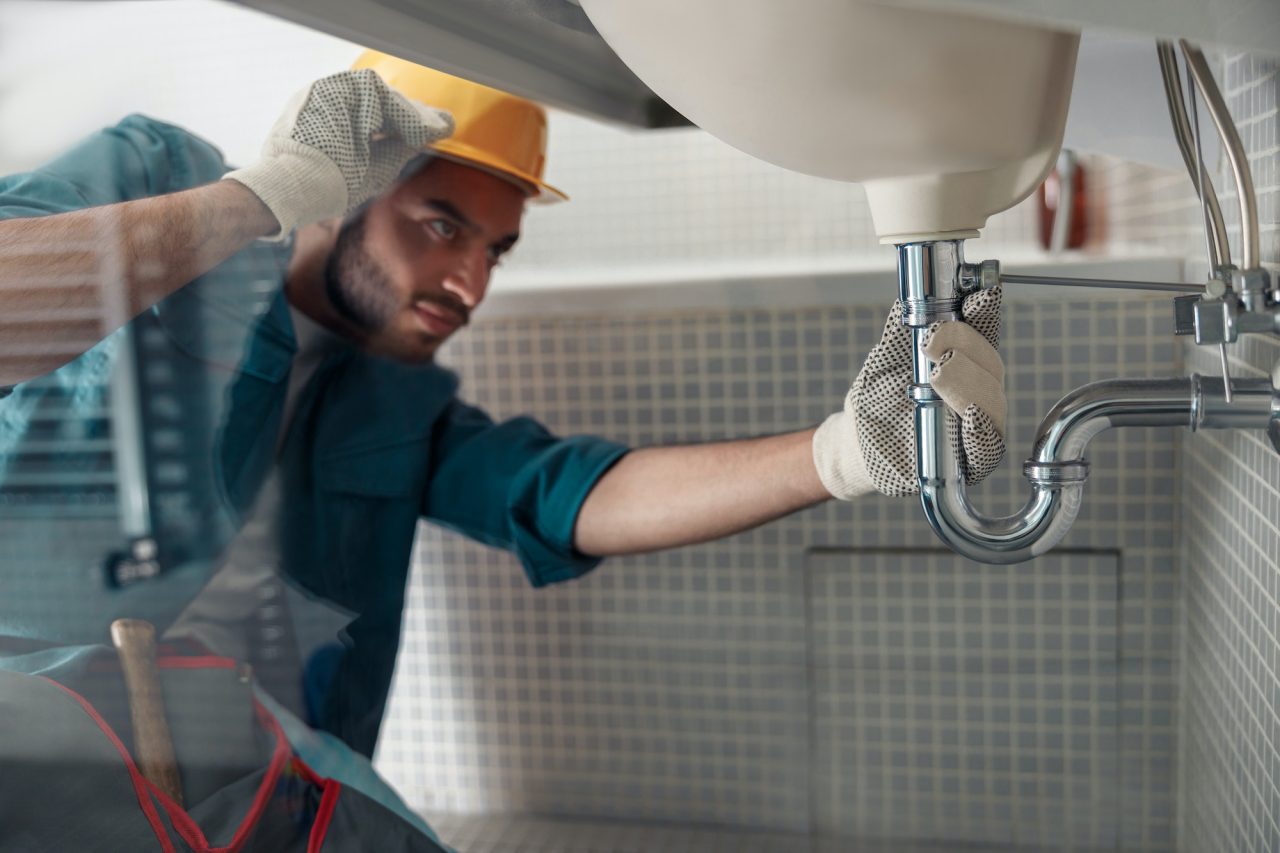Yet, more often than not, a tripped breaker or closed gas valve is the culprit in a sudden loss of hot water. For electric models, a glance at the circuit breaker or fuse box usually identifies the culprit. For gas heaters, check to see if the pilot light is still lit. If both appear fine, listen for leaks or unusual noises around the unit. Knowing these first steps helps avoid panic and saves time. Below, find practical steps and advice to deal with water heater problems, helping you feel secure and troubleshoot minor issues prior to calling in a professional.
Key Takeaways
- Safety first when your water heater craps out in the middle of the night. Then shut off water and power immediately to avoid danger and further damage.
- Carefully diagnose the problem – check for leaks, electrical issues or strange sounds, don’t try anything complicated if you’re not technically inclined.
- Boil water for necessities and conserve your hot water until you can get it fixed.
- Evaluate if it’s more affordable to repair or replace based on your water heater’s age, efficiency, and warranty.
- Use trained licensed professionals for emergency repairs, and know what you’re paying for and the service conditions before you decide!
- Protect against future failures with annual maintenance: flush the tank, check the anode rod, and test water quality for best heater life.
Your Midnight Action Plan
A water heater breaks down in the middle of the night more often than you think. These catastrophic failures are rarely a surprise—they usually trail days of mild deterrents—strange sounds, rusty water, or erratic temperature fluctuations. Most systems are at peak demand in the evenings and under greater pressure overnight, which means a sudden shutdown is more likely. Immediate action is key to safeguard both the household and the equipment.
Ensure Safety
First, switch all the electronics off close to the heater. Hazard risk is minimized, particularly if water leaks exist.
If water is already collecting, put on rubber gloves and boots to prevent slips or shocks. Snug-fitting protective gear in case leaks should make their way to wiring or outlets. Keep kids and pets away. Turn on your flashlight and check the area if it’s dark. So many houses go out near the heater when something fails, that a flashlight is safer than candles.
Stop The Water
Immediately locate your primary shutoff valve—typically located adjacent to the water meter or at the entry point of the supply to your home. Turn it off to prevent more water from entering the heater.
Some heaters include locally mounted shutoff valves on the supply line – use these if present. Set buckets or towels under leaks to catch water and protect floors. Listen for new leaks or flooding. Immediate action prevents property damage and is a time saver later.
Cut The Power
Locate the circuit breaker panel. Heater breaker – turn it off. For plug-in versions, unplug the heater as an extra precaution. Hang on for a few minutes, this gives any residual charge a chance to dissipate and makes diagnostics safer.
If you’re uncertain which breaker to use, switch off the main for maximum safety before inspecting the heater.
Diagnose The Source
Search for apparent leaks, rust or corrosion on the tank. Thermostat settings can masquerade as failure, so check them. Listen for hissing, popping or banging—these indicate sediment buildup or failing parts. If you have a multimeter and know how to use it, check heating elements or fuses for continuity.
Assess The Damage
Most nighttime failures are caused by either pressure spikes or sediment buildup. Older heaters can conk out, particularly with old age. Sudden cold can put stress on the system. Annual checks and flushing prevent many emergencies.
Why Heaters Fail At Night
Higher municipal water pressure, low household usage, and the heater’s recovery time during off hours all contribute. Nighttime temperature drops, particularly in colder climates, can put the pressure on older units or ones with concealed issues. By keeping an eye on your system’s temperature and pressure relief valve, looking for symptoms of excess pressure, and monitoring thermostat settings, you can avoid any unexpected malfunction and hazardous overheating.
Temperature And Pressure
A water heater depends on its pressure and temperature valves. If the pressure relief valve sticks or malfunctions, you can build up excessive pressure, particularly at night when the municipal pressure is high due to low use. This can result in leaks or, occasionally, tank ruptures. Keep an eye out for indicators of elevated pressure like water dripping around the upper portion of the tank or hissing sounds. Turning the thermostat down to a safe range–usually around 49 °C–diminishes scalding risk, in case the thermostat is broken. Even minor anomalies, such as a random shift in water temperature while showering, can be symptomatic of deeper problems.
Sediment Buildup
Sediment is the number one reason water heaters fail across the globe. Hard water accelerates the deposition of minerals on the tank floor. Over the years, this causes discolored water, popping or rumbling noises, and decreased efficiency. If left unchecked, sediment can insulate the water from the heating element, causing the heater to overcompensate and break down earlier. Flushing the tank once or twice a year is a solid way to purge it of junk and keep your heater efficient. Yearly inspections by a professional catch sediment problems before they lead to larger failures.
Component Fatigue
Every water heater part deteriorates with use, from thermostats to heating elements. A bad anode rod can’t save the tank from rust, adding years to the heater’s lifespan. Once you see any exposed or corroded parts during an inspection, it’s time to get moving. Just replace a bad thermostat or heating element and you’ve added years to the system’s life. Units over ten years in particular tend to break down at night because post-peak recovery cycles stress worn components still further.
Immediate Adjustments
Boil water on the stove for immediate requirements. Run cold water washes! Inventory required fixes and components for the morning. Inform housemates of the outage.
Temporary Nighttime Solutions
Nothing like your water heater going out in the middle of the night and screwing up a bath/shower. They’ll get you through until you can get them fixed, without causing a fuss and staying safe.
Boil Water
Warm water is still doable with equipment you probably own. Begin by boiling a pot of water on the stove or with an electric kettle. This hot water can top off a wash basin for hand washing, quick baths or dish washing. Never leave boiling water unattended, in case of burns or spills—safety first.
Cold water wash cycles and dishwashers save this hot water. Make sure everyone in the house knows to minimize usage. Avoid running water-based appliances or push them off until after the fixes. If you can, insulate the tank to hold onto what heat is left overnight–night air can chill the water and efficiency.
Use Appliances
Hold off on appliances grabbing hot water. Run washing machines or dishwashers in the cold. This easy change eases stress on the system. Alert everyone in your household to tap water only when necessary until the heater gets repaired.
If it was the breaker, reset it and wait an hour for hot water to resume. Nighttime temperature dips can stall recovery, so hang in there. Others have discovered that setting the temperature to about 60°C or lower keeps the pilot light from going out during the night — which comes in handy in colder climates.
Plan For Morning
Write down what to fix from what happened – did the pilot light go off or breaker trip. Collect queries for your plumber regarding the heater’s status. Booking a repair early keeps you from having to wait, particularly in high-traffic locations.
Try your warranty, which can be a cost saver if the unit qualifies. If your unit is old, weigh potential repair expenses against purchasing a newer, more efficient model. Newer heaters can reduce energy bills in the long term, and insulation makes them more effective throughout the night.
Technical Fixes
Bend the thermocouple bracket so the tip sits 10–15 mm above the pilot glow-plug if the pilot won’t stay lit. Press down on the ignition knob for a minimum of 60 seconds on self-igniting units. Turn off the regulator for a minimum of 5 minutes to allow gas to dissipate. Others discover that the pilot is successful by day but not at night, frequently because of cold.
The Repair Or Replace Dilemma
When the water heater quits in the middle of the night, it presents a difficult decision—repair or replace. Age, price and immediacy all factor in. Although there are some problems that can be remedied in flash, an aging heater might not be worth the fix. Consider these important things before you decide.
Repair Costs
Small issues such as a broken heating element or thermocouple tend to be less expensive to repair. For instance, a plumber might quote you a price for replacing only the heating element, which is a pretty quick repair. If your water heater is at or beyond ten years, minor repairs might just be temporary patches. Flushing the tank once a year, of course, assists — but most have to be replaced after ten years. Getting quotes from local plumbers helps you see if repair is close to replacing, especially if that emergency call-out rate is through the roof.
One big thing to remember is the extra charge for emergency plumbing, which can be way more at night. If the repair cost exceeds half the price of a new unit, or if repeated repairs appear to be on the horizon, replacement is usually the wiser decision.
Replacement Benefits
New water heaters are significantly more energy efficient than the old ones. That translates to reduced future bills and less chance of breakdowns in the future. New units have good warranties. It’s comforting to know you’ve got a dependable heater with the whole shebang. In certain markets, installing a new, efficient water heater may even increase your home’s value. Over the course of a few years, these savings and benefits can trump the initial cost.
Warranty Check
Review the warranty on your existing water heater. As well, some repairs can be free if your model is still under coverage. Call the maker to verify if you can claim. Save ALL repair and service records–they might be required to file a warranty claim.
Choosing A Plumber
Google emergency plumbers and check for good reviews. Verify that they’re licensed and insured. Ask friends or neighbors for trusted names. A trustworthy plumber is essential, for speedy fixes and trustworthy opinions.

Finding Emergency Repair
When a water heater goes out at night, locating assistance quickly is crucial. If your heater is not working, begin by investigating simple fixes, such as pressing the reset button or unplugging the heater and plugging it back in. Don’t ever try to fix a leaking tank by yourself—this can put you in danger. Know if your heater is gas or electric — this impacts both repair speed and problem type.
Vetting Professionals
Check a plumber’s credentials before you hire them, even in an emergency. Request licenses and training to confirm they are familiar with water heaters, as certain plumbers only perform standard plumbing and not advanced repair. Inquire if they’ve worked on your particular style of heater—electric or gas—because servicing gas units requires additional caution and expertise.
References from past clients help judge reliability. Honest professionals can share these or point to reviews online. Confirm their ability to respond to emergencies. Some only work set hours, so ask about their availability for late-night calls.
Understanding Costs
Obtain explicit, written estimates that itemize all charges, including after-hours rates or new parts. Some plumbers do have extra charges for night or weekend work, so inquire about those additional fees in advance.
If it’s an expensive repair or a complete replacement, check whether they accept card or cash or if you can finance it. Just like the other contractors, comparing prices from two or three pros will save you from getting gouged, and at least it will give you an idea of the going rate in your neighborhood.
Asking Questions
Arrive armed with questions on what caused the failure and how it will be fixed. Inquire on the repair timeline – electric heaters are notorious for a two-hour recovery, gas heaters are much faster, but a non-functioning pilot light or lack of gas can bottleneck the process.
Have a conversation about what type of parts they’ll be using and if they carry any warranties. Quality components and rock solid warranties translate into less pain down the road. Request tips on how to maintain your heater in good running condition in the future, like regular flushing or anode rod replacement.
Preventative Measures
Flush your heater annually. Inspect and replace the anode rod if necessary. Set the temperature to 49C (120F). Monitor water quality for hard water.
Preventing Future Failures
Preventing a late-night water heater catastrophe is all about scheduled maintenance and vigilant observation. Routine inspections and minor repairs can assist identify problems ahead of time, minimize the likelihood of disasters, and ensure hot water continues to run when you require it most.
Annual Flushing
So flushing the tank every year is the most effective way to rid yourself of sediment that accumulates in its base. These deposits can reduce the efficiency of the heater, reduce its lifespan, and even create rattling noises during heating cycles. If you’re not certain, FLUSH TANK by bringing in a licensed professional to give you a deep, safe clean. Make note of the date after each flush for your records, it keeps your maintenance history nice and clear! Flushing prevents sediment from choking the heating element and helps the heater run more efficiently during peak periods, such as early mornings.
Anode Rod Check
The anode rod is the magic component for preventing corrosion in your tank. Inspect the rod every three to five years. If you observe any extensive corrosion, replace it immediately. This easy piece gets rusty so the tank will not. Having a backup rod on hand allows you to replace it immediately and reduce the chance of tank leaks or rusty water. Be sure you know where your rod is in your model and what size fits your tank.
Temperature Setting
Reducing the risk of burns and conserving energy depend on effective temperature regulation. Or, turn your heater down to 120°F and keep water safe for everyone. Test the thermostat periodically for malfunctions or indications that it is malfunctioning. If water isn’t as hot or is too hot, adjust the setting or give a pro a call. Educate your entire household regarding safe use so as not to scald. In unusual cases of bacterial issues, a temporary boost to 60°C (140°F) can assist.
Water Quality
Have your water tested for hardness at least annually. Hard water causes heaters to work harder and deposits more scale. If the test indicates hard minerals, a water softener can assist. Be on the lookout for rust colored water – that could be an indicator of tank corrosion or pipe issues. A decent filtration system will assist in maintaining the water pure and prolong the life of your heater.
Conclusion
A water heater that gives out in the middle of the night disrupts your entire schedule. Actions you take immediately can prevent leaks, maintain safety, and provide you with some hot water until assistance arrives. Be aware of what to inspect, who to contact, and what DIY repairs you can attempt in the meantime. Choose repair or swap based on age or cost, not just stress. Stay on top of inspections to avoid a chilly surprise down the road. Even top-notch equipment fails, but clever action reduces the pain. Post your own fix tips or questions below. Stay tuned for more late-night tech and home headache clearing guides.
Frequently Asked Questions
1. What should I do first if my water heater stops working at night?
Just to be safe, turn off the power or gas supply to the heater. Wait a few minutes and inspect for leaks or strange noises. This can help mitigate damage and keep you safe until you can get it fixed.
2. Can I fix a water heater myself in an emergency?
Basic inspections such as resetting the heater or tightening connections are okay. With complicated problems, though, it’s always safest to bring in a licensed professional to avoid hazards and ensure long-term durability.
3. Why do water heaters often fail at night?
A lot of folks prefer hot water in the evenings, placing extra demand on older or badly kept heaters. This constant strain can bring underlying weaknesses to the surface, leading to breakdowns when you require hot water the most.
4. What temporary solutions can I use for hot water at night?
Just boil some up on the stove or in an electric kettle for the essentials. For bathing, attempt to combine boiled and cool water in a basin for a rinse.
5. How do I find emergency water heater repair services at night?
Google ‘24-hour water heater repair’ in your area. Select well-reviewed, licensed companies. Lot’s of ’em provide emergency service and can be out in a flash!
6. Should I repair or replace my broken water heater?
If your heater is older than 10 years or requires constant repairs, replacement could be more economical. For newer heaters with small problems repairs typically do make sense.
7. How can I prevent water heater failures in the future?
Have your water heater serviced regularly, at least once a year. Check for leaks, flush the tank, and connections. Preventive care extends your heater’s life and reduces unexpected breakdowns.
Get Reliable Water Heater Service in Santa Rosa — Fast, Honest, and Local Help Is Just a Call Away
Don’t let a faulty water heater disrupt your comfort another day. Whether you’re dealing with cold showers, inconsistent water temps, or a unit that’s completely shut down, the team at Yorkshire Plumbing & Drain Services is here to help. We provide fast, affordable, and honest water heater repair and installation services throughout Santa Rosa and nearby areas. With nearly a decade of hands-on experience, we know exactly how to restore your hot water and peace of mind.
Need help now? Call or message us today to schedule your no-cost estimate. We’re proud to offer same-day service when possible and are always ready for urgent jobs. Visit our Contact Page or give us a call — our local, family-owned team is standing by to get your hot water flowing again.
Disclaimer
The information provided on this website is for general informational and educational purposes only and is not intended as professional plumbing or construction advice. You should consult with a licensed plumber or qualified contractor for guidance specific to your home or situation. Do not rely solely on the content of this site to make decisions about plumbing repairs, installations, or maintenance. While we strive to keep the information current and accurate, it may not reflect the most recent industry standards or code requirements. Yorkshire Plumbing & Drain Services disclaims all liability for any actions taken or not taken based on the content of this site, to the fullest extent permitted by law.





